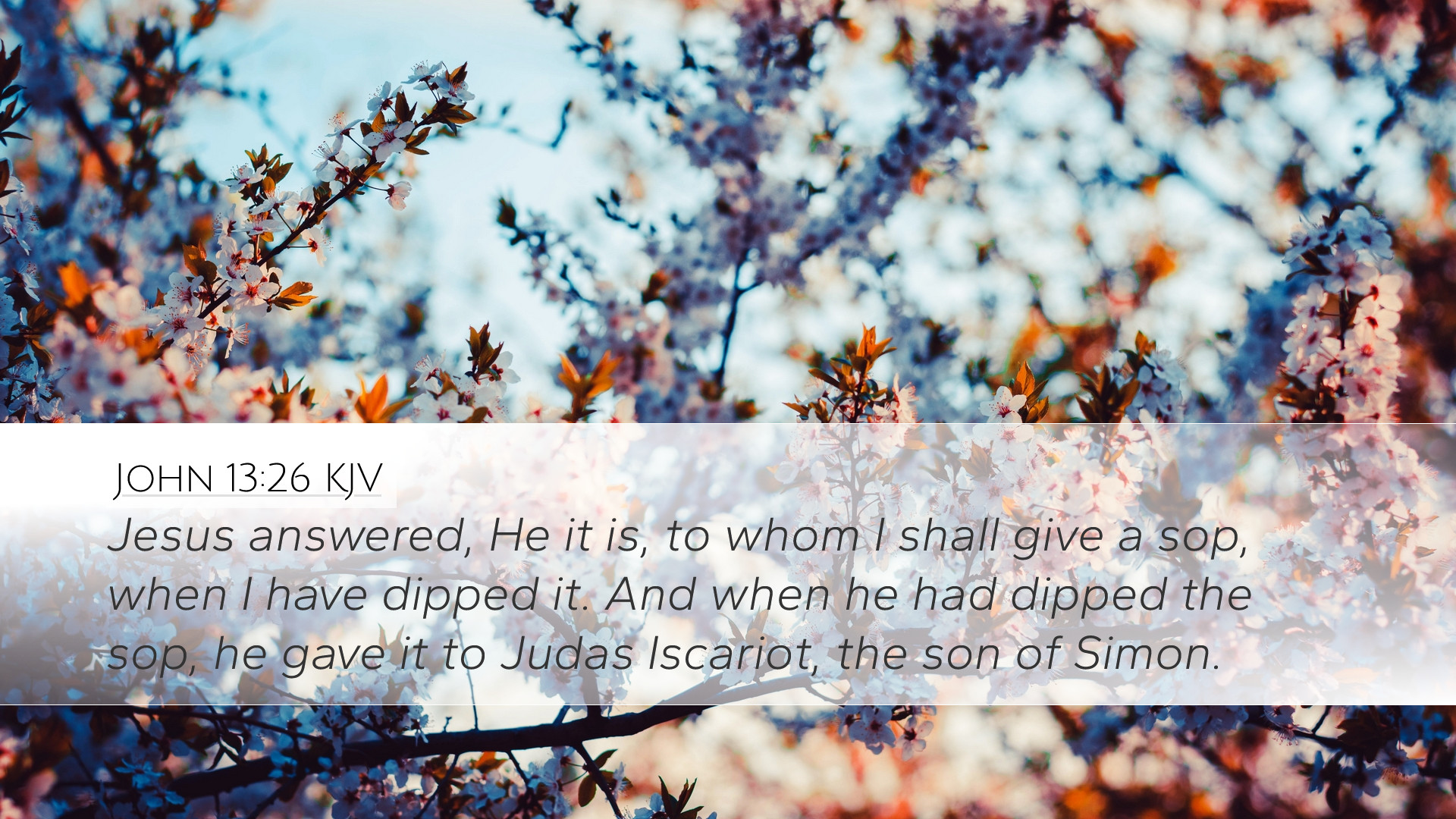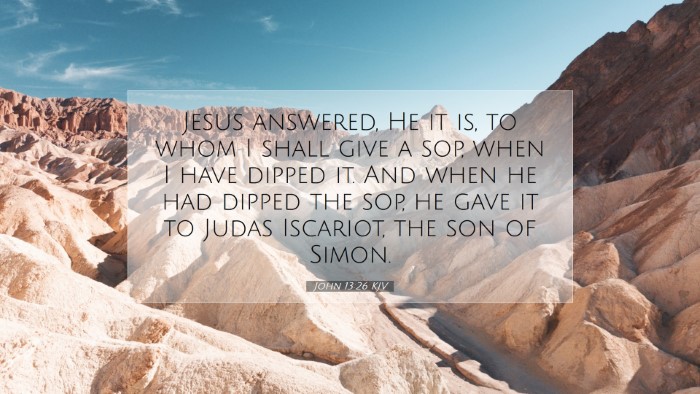Commentary on John 13:26
Verse: John 13:26 - "Jesus answered, He it is, to whom I shall give a sop, when I have dipped it. And when he had dipped the sop, he gave it to Judas Iscariot, the son of Simon."
Contextual Overview
The passage occurs during the Last Supper, a pivotal moment in the Gospels that captures Christ's intimate interaction with His disciples before His impending betrayal and crucifixion. This specific verse reveals not only the reality of betrayal but also the profound themes of grace and foreknowledge within the narrative.
Theological Insights
In this poignant moment, as Jesus prepares to identify His betrayer, He employs a traditional gesture of hospitality—dipping bread and sharing it. This act symbolizes both an invitation to fellowship and a stark contrast to the treachery about to unfold.
Understanding the Sop
Matthew Henry highlights the significance of the sop as an invitation, noting that it was common practice to share food as a sign of friendship. By giving the sop to Judas, Jesus acknowledges him even amidst his treachery, demonstrating Jesus' understanding of human nature and divine mercy.
Albert Barnes comments that the act of giving the sop reflects Christ's love and the sorrow of the betrayal. Jesus offers Judas one last chance for repentance, which emphasizes that despite the choice Judas made, the door was still open for him to turn back to God.
Insights on Betrayal
Adam Clarke provides a deeper analysis of Judas’ character, emphasizing that his betrayal was not merely a moment of weakness but a culmination of a heart turned against Christ. Clarke notes that Judas's actions fulfill prophecy, showcasing the tension between divine sovereignty and human free will.
Betrayal can also be understood in a broader theological context, as it underscores humanity's persistent struggle with sin, indicative of the fall from grace and the need for redemption.
Applicational Reflections
This verse challenges pastors, theologians, and students to explore their own lives and the nature of their relationships with Christ. It raises essential questions: Are there areas in our hearts where gratitude towards Christ is overshadowed by betrayal or neglect? How do we respond to the invitation of grace even when we feel distant from God?
- Recognizing God’s Patience: Jesus’ treatment of Judas exemplifies divine patience and love, which is a reminder for believers to extend grace even to those who may oppose them.
- The Nature of True Fellowship: By sharing the sop, Jesus illustrates that fellowship with Him can be a double-edged sword—inviting intimacy while also exposing the heart's true intentions.
- Invitation to Repentance: There is a profound lesson in recognizing that no one is beyond redemption; Judas had the opportunity to reconsider, a theme echoed throughout scripture.
Pastoral Applications
Pastors can utilize this verse to teach about the complexity of human relationships and the nature of betrayal in their congregations. It serves as an example of how individuals can embody both faith and failure.
Furthermore, pastoral counseling can draw insight from this moment of intimate betrayal to encourage individuals towards true repentance and reconciliation, demonstrating that Jesus’ love persists even in the darkest times.
Conclusion
In summary, John 13:26 is a powerful illustration of love, betrayal, and the continual call towards grace that Christ extends to all. The passage serves as a stark reminder of the human condition—prone to sin yet continuously pursued by divine love. For pastors, students, and theologians alike, this verse invites deep reflection on the nature of our relationship with Christ and challenges us to embody the grace we have received.


